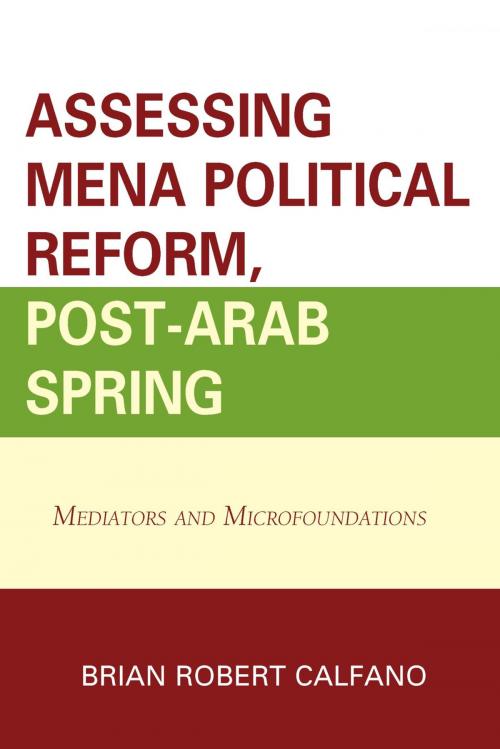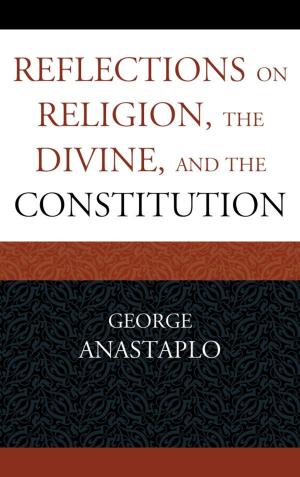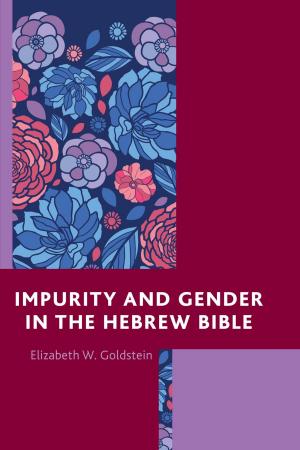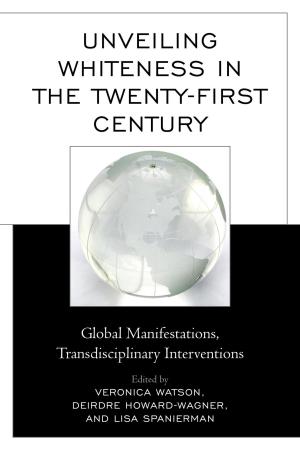Assessing MENA Political Reform, Post-Arab Spring
Mediators and Microfoundations
Nonfiction, Social & Cultural Studies, Political Science, Government, Democracy, Politics, Economic Policy, History & Theory| Author: | Abdelhak Azzouzi, Brian Robert Calfano, Jason Gainous, Mehmet Gurses, Lynne Alisé Lofftus, Marcus Marktanner, Christina Michelmore, Mahmoud Sadri, Emile Sahiyeh, B. Todd Spinks, Kevin Wagner, Nader Hashemi, University of Denver | ISBN: | 9780739135846 |
| Publisher: | Lexington Books | Publication: | October 29, 2014 |
| Imprint: | Lexington Books | Language: | English |
| Author: | Abdelhak Azzouzi, Brian Robert Calfano, Jason Gainous, Mehmet Gurses, Lynne Alisé Lofftus, Marcus Marktanner, Christina Michelmore, Mahmoud Sadri, Emile Sahiyeh, B. Todd Spinks, Kevin Wagner, Nader Hashemi, University of Denver |
| ISBN: | 9780739135846 |
| Publisher: | Lexington Books |
| Publication: | October 29, 2014 |
| Imprint: | Lexington Books |
| Language: | English |
The euphoria and promise that accompanied the Arab Spring has been replaced with a business-as-usual tone in the MENA. Revolutionary shifts in political and religious power have been tempered and, in some cases, reversed. Observers should not be surprised at these outcomes, but skeptics would be advised to remain attentive to regional factors that continue to present potentials for reform. This volume examines a variety of such factors as mediators of MENA political reform, including: Islam, political party and government relations, regime type, elite influence, and Internet access. By providing both a broad review of the relevant literatures and a flexible assessment of the region’s political prospects in the post-Spring period, the volume leverages insights from a series of regional experts and political analysts to offer a useful contribution to the continuing work of reform by MENA scholars, policymakers, and the general public.
The euphoria and promise that accompanied the Arab Spring has been replaced with a business-as-usual tone in the MENA. Revolutionary shifts in political and religious power have been tempered and, in some cases, reversed. Observers should not be surprised at these outcomes, but skeptics would be advised to remain attentive to regional factors that continue to present potentials for reform. This volume examines a variety of such factors as mediators of MENA political reform, including: Islam, political party and government relations, regime type, elite influence, and Internet access. By providing both a broad review of the relevant literatures and a flexible assessment of the region’s political prospects in the post-Spring period, the volume leverages insights from a series of regional experts and political analysts to offer a useful contribution to the continuing work of reform by MENA scholars, policymakers, and the general public.















